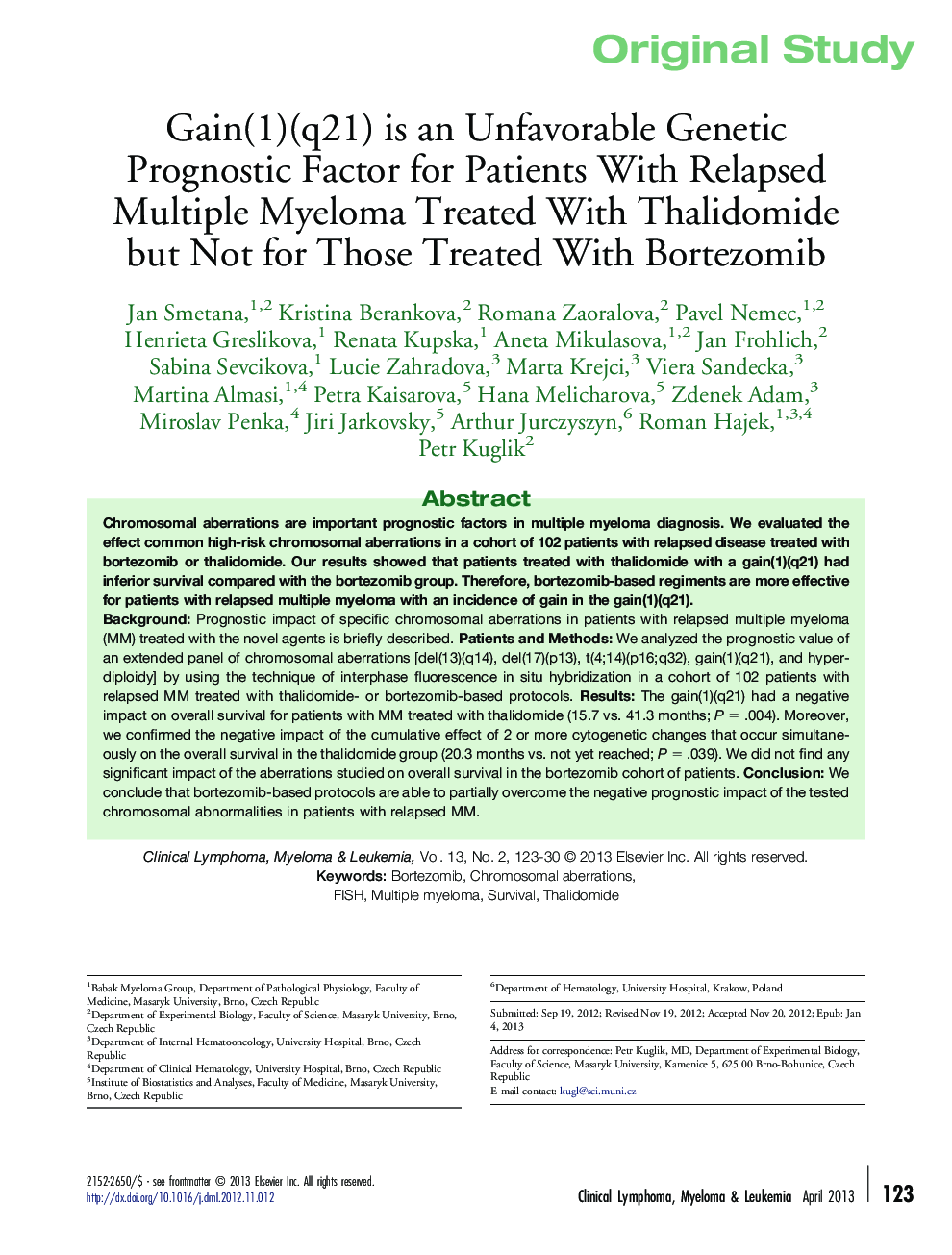| کد مقاله | کد نشریه | سال انتشار | مقاله انگلیسی | نسخه تمام متن |
|---|---|---|---|---|
| 2754578 | 1149789 | 2013 | 8 صفحه PDF | دانلود رایگان |

BackgroundPrognostic impact of specific chromosomal aberrations in patients with relapsed multiple myeloma (MM) treated with the novel agents is briefly described.Patients and MethodsWe analyzed the prognostic value of an extended panel of chromosomal aberrations [del(13)(q14), del(17)(p13), t(4;14)(p16;q32), gain(1)(q21), and hyperdiploidy] by using the technique of interphase fluorescence in situ hybridization in a cohort of 102 patients with relapsed MM treated with thalidomide- or bortezomib-based protocols.ResultsThe gain(1)(q21) had a negative impact on overall survival for patients with MM treated with thalidomide (15.7 vs. 41.3 months; P = .004). Moreover, we confirmed the negative impact of the cumulative effect of 2 or more cytogenetic changes that occur simultaneously on the overall survival in the thalidomide group (20.3 months vs. not yet reached; P = .039). We did not find any significant impact of the aberrations studied on overall survival in the bortezomib cohort of patients.ConclusionWe conclude that bortezomib-based protocols are able to partially overcome the negative prognostic impact of the tested chromosomal abnormalities in patients with relapsed MM.
Journal: Clinical Lymphoma Myeloma and Leukemia - Volume 13, Issue 2, April 2013, Pages 123–130